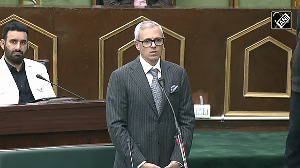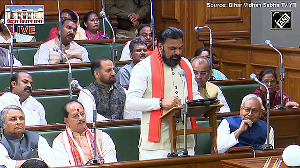Prompt refunds have been made for small amounts. For larger amounts, time has been sought till March 2018
 On March 30, 2016, the income-tax (I-T) office reportedly raised an incorrect demand of Rs 10,000 crore on State Bank of India (SBI) and forced it to pay up on the same day. This was refunded the very next month.
On March 30, 2016, the income-tax (I-T) office reportedly raised an incorrect demand of Rs 10,000 crore on State Bank of India (SBI) and forced it to pay up on the same day. This was refunded the very next month.
When this use of extortionate methods to meet revenue collection target was reported in the press, the finance ministry criticised such crude methods to fulfil revenue targets. In response, tax officers passed a resolution criticising the ministry. The minister then intervened and warned of action against tax officers under conduct rules for insubordination.
In fact, most tax practitioners were not surprised by the unjust demand of Rs 10,000 crore (Rs 100 billion) raised on the last day of the financial year, and its forcible collection on the same day. Their clients, too, routinely face this. What surprised them was that the unjustly collected tax was actually refunded in the next month itself.
This process normally takes many months or even years, no matter how justified tax refund is.
The biggest practitioner of denying legitimate tax refund demands is the central processing cell of the tax department. According to the procedure, a refund claimed in the return should be given after it is checked and corrected for any arithmetical and other prima facie errors.
The assumption is that the refund claimed is correct. The department always has the option to opt for a detailed scrutiny later. And, if the refund is found to be incorrectly claimed, it can demand the tax back with interest and charge a stiff penalty.
Since most returns are filed electronically, this check for prima facie correctness is a fairly simple process. Hence, providing the refund quickly should be easy. This is proven by the fact that many who filed their tax returns in July, have already received their refunds. In fact, prompt refunds are supposed to be the department’s new, friendly face. But, all these quick refunds are for very small amounts.
Interestingly, the technology does not discriminate between small and large refunds. Yet, the department has kept time till March 31, 2018, for all returns filed this year. Obviously the larger refund claims are going to be paid only by March 31, 2018.
There is further delay due to payment by cheque, rather than electronically. Then, in many cases, the tax official is asked to check the refund manually. The officer reduces the tax refund amount by unjustly denying credit for taxes already paid.
If the department is serious about making tax refunds on time, it should provide for a short window to make the refund. The refund should be made electronically from the central processing cell itself. Only if that is done, I think, the finance ministry will have the moral high ground to censure tax officers on such extortionate methods of tax collection.
Illustration: Uttam Ghosh/Rediff.com
Harsh Roongta is a Sebi-registered investment advisor







 © 2025
© 2025